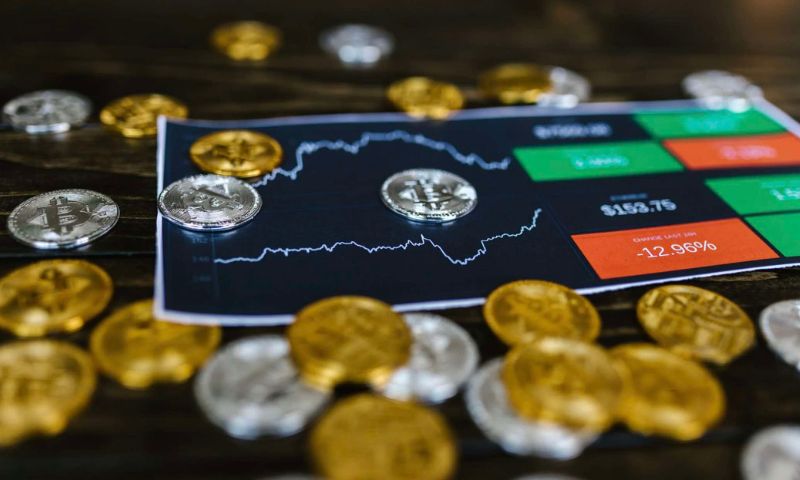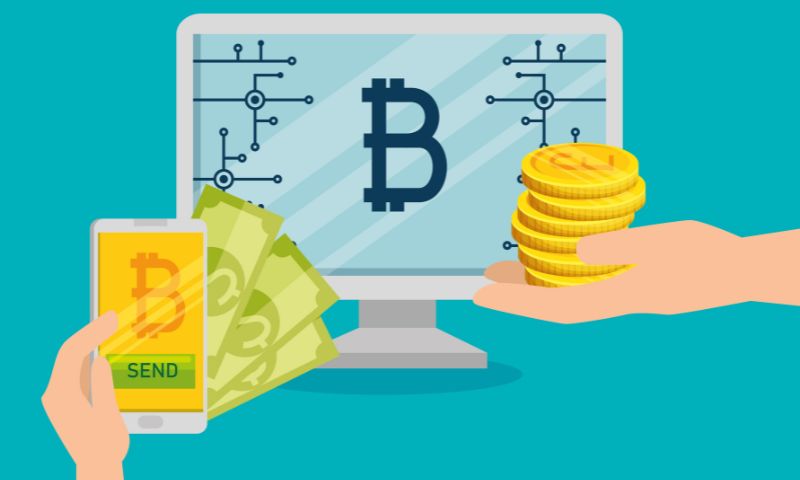Diving into the crypto market can feel like a maze. I get that. With a boatload of platforms to choose from, how to choose a crypto exchange for beginners should be simple, right? Wrong—it’s packed with fine print. But fear no more! You need a guide that’s honest and straightforward, and that’s exactly what this is. You want a place where your money is safe, your fees are fair, and where trading isn’t rocket science. Stick with me, and I’ll walk you through all those gritty details, so you can trade with confidence and keep your cool. Ready to become a savvy crypto investor? Let’s get rolling!
Understanding the Basics of Crypto Exchanges for New Investors
What to Look for in User-Friendly Cryptocurrency Exchanges
Are you new to buying digital cash like Bitcoin or Ethereum? Feeling lost? Don’t stress. Choosing your first crypto exchange feels tough, but I’m here to make it easy. Here are key things you should eye when picking one:
First, aim for easy-to-use exchanges. This means a clean design and clear options. You want to buy and sell without getting a headache, right? Check if the platform suits your tech skills. Next, trade security is huge. Make sure they protect your money well. How do they keep your funds safe? Look for two-factor authentication at least. Fees matter too. Lower fees mean more cash stays in your pocket. See how much they charge for trades and cash outs. Check if they let you use your own money, like dollars, to buy crypto. This is fiat to crypto service, and it’s super handy.
Last, good support helps a lot. You’ll have questions, for sure. You want quick, clear answers from the exchange’s help team. Don’t ignore this.
Selecting a platform with these features will kick-start your crypto journey right. Remember, easy does it, keep your money safe, watch those fees, and get help when you need it.
The Importance of Educational Resources in Crypto Trading
Now, let’s chat about learning. Yes, trading crypto is exciting, but it also has risks. So taking time to learn is key. Here’s the deal – look for platforms that teach you about trading. They should have guides, videos, maybe even quizzes.
Understanding terms like ‘liquidity’ or ‘volume’ is part of the game. Liquidity means how quick you can buy or sell without bumping the price much. Volume shows how much trading happens there. You want high liquidity and volume. This makes trading smooth and can give better prices.
You also should learn about different coins. Places with a mix of well-known and new coins give you choices. This is good for when you’re ready to branch out from Bitcoin. But start with a place that makes learning fun and simple. It should feel like a game, not homework.
And here’s a little pro tip: the more you know, the better choices you make. And those better choices? They can lead to more cash in your wallet down the line. So take time to learn before you leap into trading.
To wrap it up, pick exchanges that make trading easy, keep your money safe, show all fees, and help you learn. Happy trading!
Remember, these steps are just the beginning. Once you’re set up, keep exploring and learning. There’s always something new in the wild world of crypto.
Security and Fees: The Cornerstones of Crypto Trading
Navigating Security Measures in Crypto Exchanges
When choosing a cryptocurrency platform, think safety first. You want a place where your money is safe, right? Look for exchanges with strong security measures. They should use things like two-factor authentication (2FA). This is like a double lock on your account, making it harder for the bad guys to get in.
Exchanges also need to protect your data. Great platforms have encryption. This means they scramble your personal details so they can’t be stolen easily. Some platforms even offer insurance. This can help get your money back if something goes wrong.
When we talk about security, we also mean how they store your cryptocurrencies. Cold storage—keeping assets offline—is safer than hot wallets that are connected to the internet. Ask if the exchange uses cold storage.
Breaking Down the Fee Structure of Popular Platforms
Now, let’s talk about fees. Everyone hates fees, but they’re part of trading crypto. What you pay can eat into your profits big time. You’ve got to understand crypto exchange fees. Some platforms charge you for every trade. Others might take a cut when you move your cash out.
Trades can have maker or taker fees. If you set a price for a trade (a limit order), you’re a maker. If you take a price already set (a market order), you’re a taker. Makers often get lower fees because they add orders to the market.
Another fee to watch out for is the spread. It’s the difference between the buying and the selling price of a coin. A big spread means the exchange might be getting more money from you. So a narrow spread is best.
Remember withdrawal fees too. Some platforms charge a lot to take out your money. If you plan to cash in and out often, find one with low withdrawal fees.
Selecting a crypto exchange isn’t just about the lowest fees. No one wants a cheap service that puts their investments at risk. It’s about finding a balance. The top crypto platforms for starters will have a good mix of low fees and strong security.
When comparing cryptocurrency exchange rates, don’t just look at the numbers. Think about what’s behind them. A trusted exchange with a little higher fee might be worth it for the peace of mind.
Every beginner’s guide to crypto exchanges tells you to read the fine print. So, dive into the terms of service. Learn about the security measures, insurance, and how your data is protected. Get to know the fees for trading, depositing, and withdrawing. That way, you’ll trade with a platform that’s not just user-friendly but keeps your hard-earned money safe too.
Executing Trades and Managing Investments
The Significance of Liquidity and Volume on Trading Experience
When selecting a cryptocurrency platform, think of a busy marketplace. This buzz is liquidity – a sign of a good market. High liquidity means more people are trading. It’s easier for you to buy or sell at fair prices. A platform’s volume shows how much trade happens there.
Higher volume equals more action. It means the platform is popular. Like a well-visited market stall, it can offer better deals. For you, this means less wait and less price change risk when you trade. Always check liquidity and volume before you dive in.
Differentiating Between Cryptocurrencies and Accessibility Features
Now let’s talk coins. Bitcoin and Ethereum are like bread and milk. They are everywhere. But maybe you want exotic fruit – lesser-known coins. Some platforms have many types; others don’t. If you like variety, look for exchanges with more coin options.
But more coins mean more to learn. Don’t worry, though! Start with one coin. Learn as you go. Also, see how the exchange teaches about new coins.
Next up, getting your money in and out. Make sure the platform lets you use your cash (fiat) to buy crypto. See what payment methods it accepts. Can you use your bank card or online pay? This is fiat to crypto transactions.
Remember the exit route. Check the withdrawal process. Is it easy? Are there fees? You should be able to get your money as easily as getting a snack from a vending machine.
Finally, consider your tools. Mobile apps let you trade on the go. They should be easy like a good game on your phone. Check if the platform has a mobile app and if it’s good for starters.
Now, safety first. Check if the exchange has security measures and insurance. It’s like wearing a helmet when you ride a bike. Better safe than sorry!
You’ll also want to see if they have customer support that can help if you get stuck. Think of this as the helpful assistant in a store.
An exchange should fit your life, not the other way around. Look for ease of use, tools you need, and a warm community. Start small, learn fast, and soon, you’ll trade like a pro! Keep in mind that managing your investment well is as important as choosing the right platform.
Regulatory Compliance, Support, and User Feedback
How Exchange Compliance and Regulations Affect Your Trading
When picking a crypto exchange as a beginner, think of it like choosing a bank. Would you deposit your cash into a bank that doesn’t follow the rules? Probably not. In the crypto world, following the rules matters just as much.
Regulations keep your money safe. So, first off, check if the exchange obeys the laws. This shows they care about protecting you and your money. Now, you might wonder, “How do I know if an exchange is following regulations?” Here’s what you do: look for terms like “licensed” or “registered” on their site.
Licensed exchanges must show they’re reliable. They have to protect your personal info and can be trusted not to run off with your cash. Plus, they often need to have an insurance fund. This means if something goes wrong, there’s backup money to help cover your losses.
But, let’s be real, rules change from place to place. So make sure the exchange you pick works by the laws of your country. Nobody wants the surprise of learning they can’t use their account because of where they live.
Leveraging Customer Support and User Testimonials for Informed Decisions
Good customer support is like having a trusty guide in a new city. It’s a big deal for new traders. You want fast and clear answers when you need help. So, how do you know if an exchange will have your back? Easy. Look at what other users say about their support.
User feedback is like a window into how the exchange really works. Read the reviews and stories from people who use the exchange. If most people are happy, that’s a great sign! Users often talk about how easy it was to get started, how they got help, and how the exchange solved their problems.
You can quickly tell which exchanges value their users. They’ll have lots of info ready for beginners, like how-to guides and 24/7 help desks. Look for exchanges that make it easy to ask questions, like having a chat service or a simple phone number to call.
Now, why is this so important? Because when you’re new and you get stuck, good help can be the difference between a quick fix and a major headache. It’s like having a good teacher when you’re learning something new. It can make or break your trading adventure.

Choosing a crypto exchange isn’t just about where to buy crypto. It’s about finding a place that helps you feel safe, supported, and ready to dive into the new world of crypto. So take your time, check the rules and what folks say, and pick an exchange that feels right for your journey into crypto trading.
To wrap this up, we dug into key parts of crypto trading for beginners. From finding easy exchanges to understanding why lessons count, we kept it simple. Security and fees are huge; we explored how to keep safe and what costs to expect. We also looked at how trades work and what tricks help manage your cash.
Then we checked out why some coins are easier to get and how that helps you. Finally, we saw why rules, help, and feedback matter when picking where to trade. Remember, the best trades are smart trades. Learn lots, stay safe, and keep costs in check. Use what you’ve learned here to make choices that fit your goals. With this info, you’ll be on track to trade crypto like a pro. Happy trading!
Q&A :
What factors should beginners consider when selecting a cryptocurrency exchange?
When beginners are selecting a cryptocurrency exchange, several factors should be taken into account to make an informed choice:
- Reputation: Research the exchange’s reputation online. Look for user reviews and ratings to gauge reliability.
- Security: Prioritize exchanges that offer strong security measures such as two-factor authentication (2FA) and cold storage options.
- User Interface: Choose an exchange with an intuitive, user-friendly interface to ease the learning curve.
- Fees: Compare the fee structures of different exchanges, including withdrawal and trading fees.
- Available Cryptocurrencies: Ensure that the exchange supports the trading pairs you’re interested in.
- Customer Support: Consider the quality of customer service, including response time and languages supported.
- Geographical Restrictions: Some exchanges may not be available in your country; verify availability before proceeding.
How do I evaluate the security features of a crypto exchange?
To evaluate the security features of a crypto exchange, you should:
- Check if the exchange uses HTTPS for a secure connection.
- Look for exchanges that offer cold storage options to safeguard your funds offline.
- See if they implement two-factor authentication (2FA) for additional login security.
- Investigate past security breaches and how the exchange handled them.
- Review their procedures for verifying user identity to prevent fraud and unauthorized access.
Can beginners start trading on any cryptocurrency exchange?
While beginners can sign up to most cryptocurrency exchanges, not all platforms are suitable for novice traders. Beginners should consider exchanges that:
- Provide educational resources for learning about cryptocurrency trading.
- Offer demo accounts or low-stakes trading options to practice without significant risk.
- Feature a simple and clear interface to navigate the platform easily.
- Have robust customer support ready to assist with any questions or issues.
What are the typical fees involved in using a crypto exchange?
Typical fees involved in using a crypto exchange include:
- Trading Fees: These are fees charged per trade, often calculated as a percentage of the trade volume.
- Withdrawal Fees: Fees incurred when withdrawing fiat or crypto assets from the exchange platform.
- Deposit Fees: Some exchanges charge fees for depositing funds into your account, although this is less common.
- Spreads: The difference between the buy and sell price on an exchange can indirectly act as a cost.
Is it safe for beginners to use online crypto exchanges?
Using online crypto exchanges can be safe for beginners if they choose reputable platforms with robust security measures. However, it is crucial for beginners to:
- Educate themselves about cybersecurity best practices.
- Use strong and unique passwords for their exchange accounts.
- Activate two-factor authentication (2FA) where available.
- Be aware of phishing attempts and other common online scams.
- Regularly monitor their accounts for any unauthorized activity.


